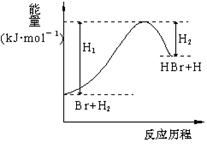Many in the Middle East have difficulty in adjusting themselves to the new situation created by the departure of the imperial powers. For the first time in almost 200 years, the rulers and people of the Middle East have to accept the final responsibility for their own affairs, to make their own mistakes and to accept the consequences. This is difficult to internalize, even to perceive, after so long a period. For the entire lifetimes of those who formulate and conduct policy at the present time and of their predecessors for many generations, vital decisions were made elsewhere, ultimate control lay elsewhere, and the principal task of statesmanship and diplomacy was as far as possible to avoid or reduce the dangers of this situation and to exploit such opportunities as it might from time to time offer. It is very difficult to forsake the habits not just of a lifetime but of a whole era of history. The difficulty is much greater when alien cultural, social and economic preeminence continues and even increases, despite the ending of alien political and military domination.
Military and to a growing extent political intervention by the West has indeed ended, but the impact of its science and culture, its technology, amenities and institutions remains and even increases. As in other parts of the non-Western world, this impact has been and will be enormous. In these circumstances, it is natural that Middle Easterners should continue to assume—and proceed on the assumption—that real responsibility and decision still lie elsewhere. In its crudest form, this belief leads to wild and strange conspiracy theories directed against those whom they regard as their enemies—Israel, and more generally the Jews, the United States, and more generally the West. No theory is too absurd to be asserted or too preposterous to be widely and instantly believed. Even among more responsible statesmen and analysts, a similar belief in alien power, albeit in a less crude form, often seems to guide both analysis and policy. Some even go so far as to invite outside intervention, presumable in the belief that only outside powers have the capacity to make and enforce decisions. A case in point is the constant appeal to the United States to involve itself in the Arab Israel conflict, oddly coupled with the repeated accusation of "American imperialism. "
This state of mind is likely to continue for some time, with appeals for support or even intervention to the United States, to Russia and even to the European Union. In time, no doubt, Middle Eastern governments and people will learn how to use this window of opportunity to the best advantage—that is, of course, if the window remains open long enough.
The Middle Eastern countries were at a loss after the departure of the imperial powers because()
A. they were rather backward and in bad need of foreign assistance
B. they were accustomed to being ruled by an alien force
C. they were plunged into war after the departure of the imperial powers
D. the imperial powers left them nothing but disorder

